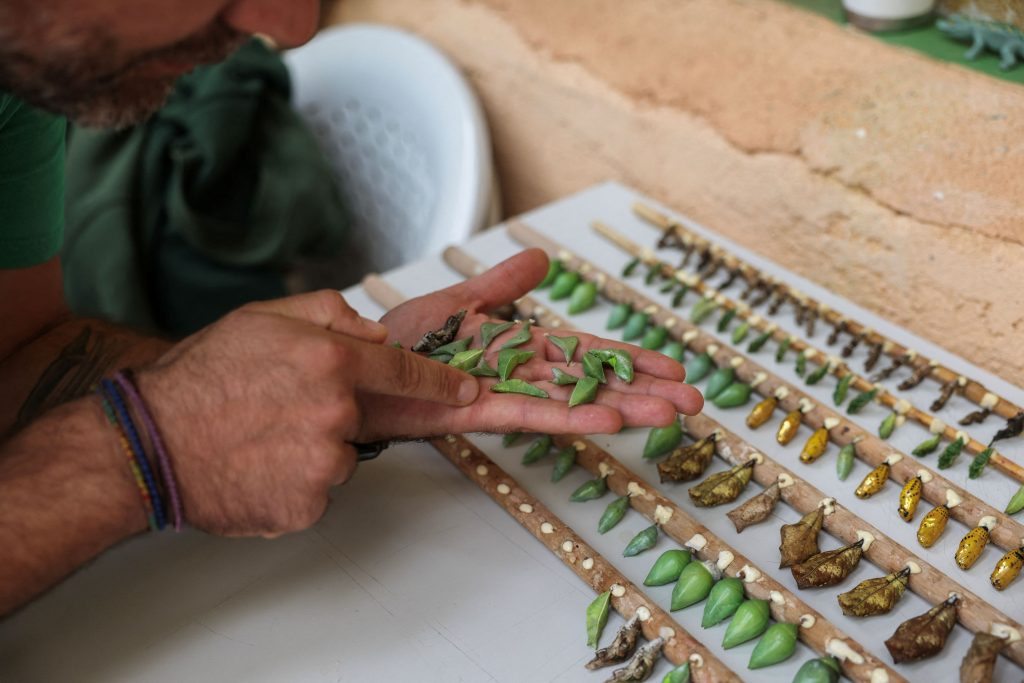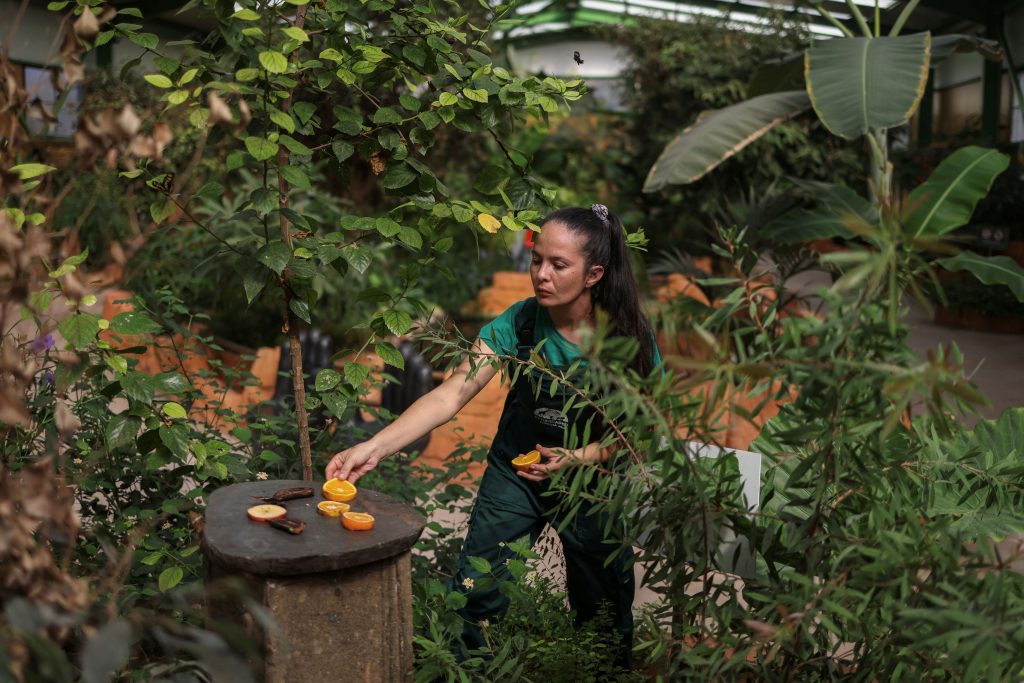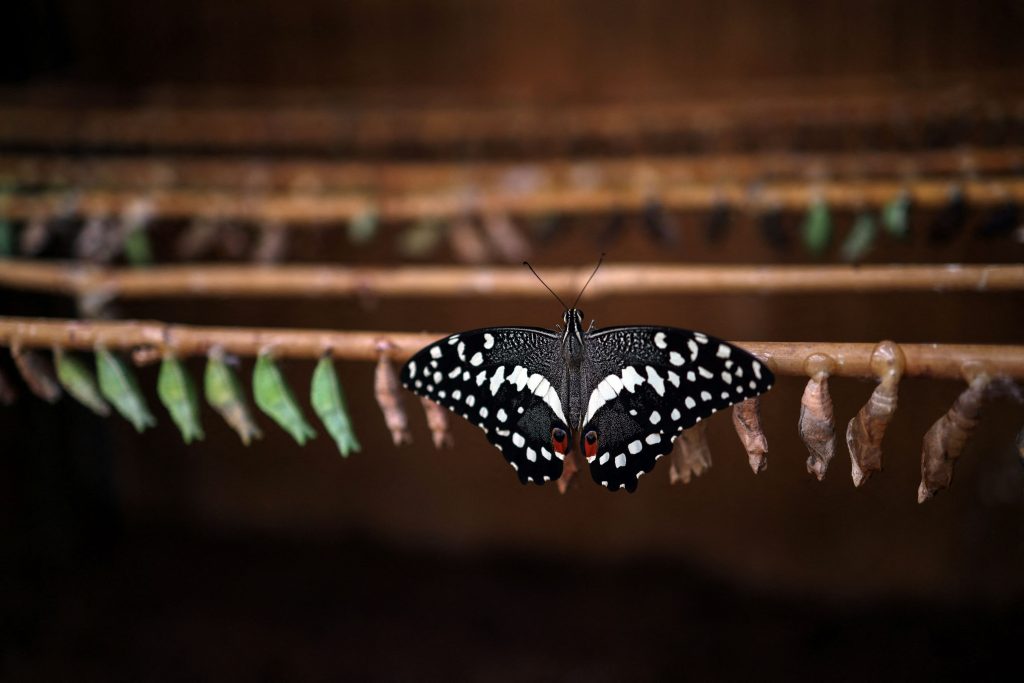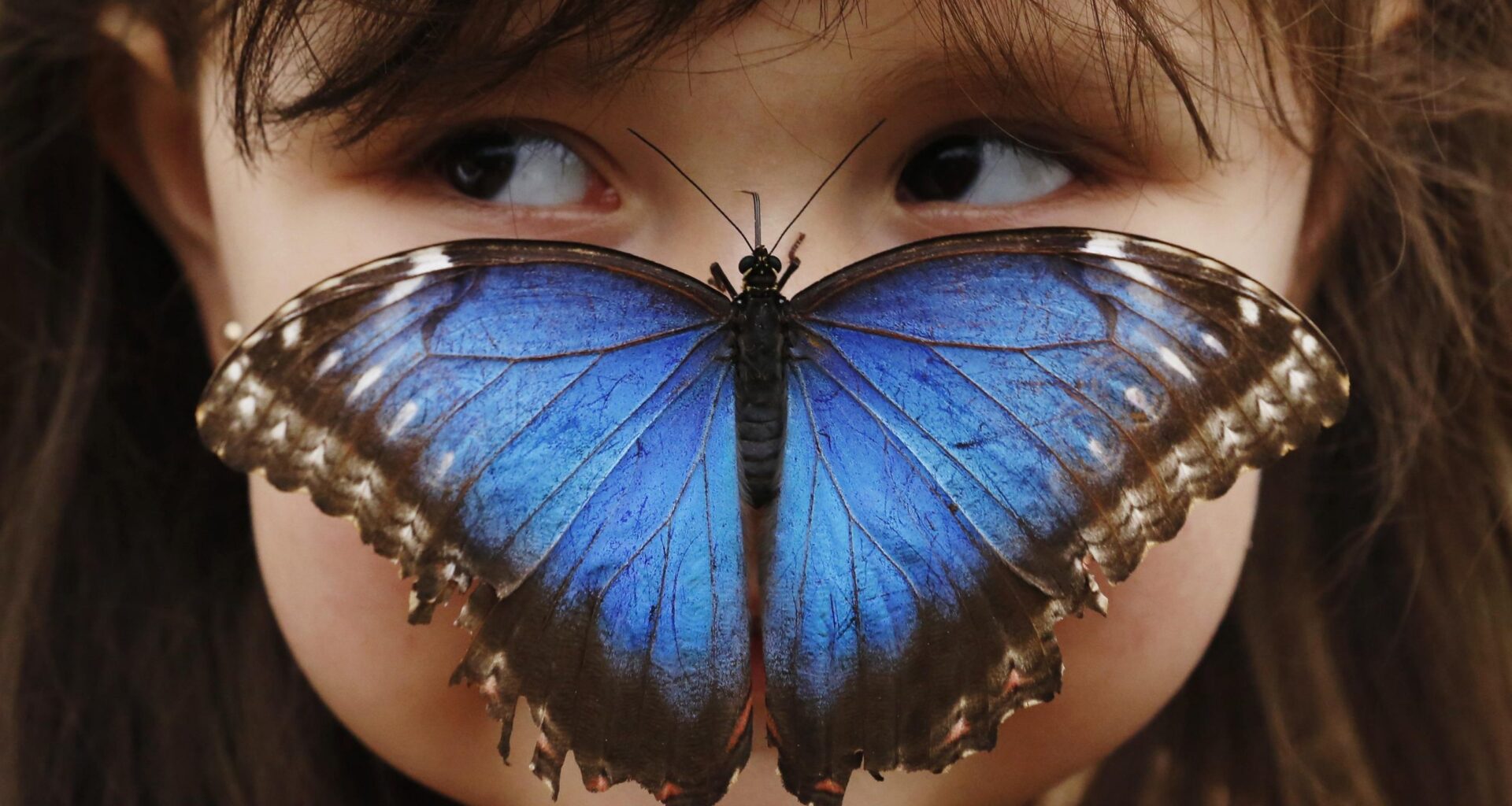Greece’s butterflies are struggling for survival due to climate change, reports Reuters. Rising temperatures in the country are reducing food sources as flowering periods shorten, which is impacting their lifespan.
Scientists also believe Greece’s butterflies may be shrinking as an adaptation to the changing climate.

Antonis Mpalas, 41, attaches chrysalises, the butterflies in their cocoons, to wooden sticks before placing them in breeding boxes, at the Attica Zoological Park, near Athens, Greece, October 16, 2024. REUTERS/Stelios Misinas
Antonis Balas from Attica Zoological Park told Reuters that climate change “severely affects their reproduction and lifespan… as the climate in their natural environment shifts, their lifespan shortens.”
Greece is home to 237 butterfly species, but these face increasing risks from environmental changes.

Butterfly keeper Maria Mallia, 32, places orange slices on a table for butterflies at the Attica Zoological Park near Athens, Greece, October 18, 2024. REUTERS/Stelios Misinas
Scientists are concerned, as countries like Mexico and Great Britain have already observed sharp declines in butterfly species due to similar environmental shifts.
Although butterflies aren’t keystone species or primary pollinators, they are valuable indicators of ecosystem health.
Agronomist Konstantinos Anagnostellis from the University of Ioannina is studying changes in the size of Greece’s butterfies in response to climate conditions as part of the MEIOSIS research project.

A butterfly sits inside a breeding box after hatching from its cocoon, at the Attica Zoological Park, near Athens, Greece, October 18, 2024. REUTERS/Stelios Misinas
Anagnostellis explains that butterflies depend on temperature to perform critical activities like mating, reproduction, growth, and feeding. The warming climate is driving butterflies to cooler areas, where unfortunately, food is less abundant.
Meanwhile, a new butterfly exhibit at the Attica Zoological Park, where butterflies are raised in a controlled environment, has not observed changes in the lifespan nor size of butterflies, as has been observed by scientists in nature.
